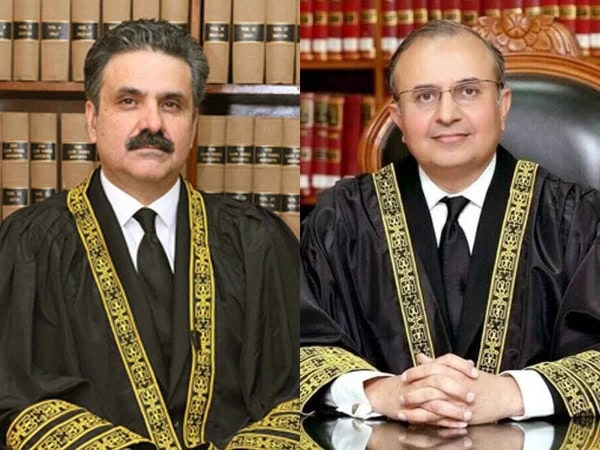ISLAMABAD – Justice Mansoor Ali Shah has sent a letter to Chief Justice of Pakistan Yahya Afridi, raising concerns over several judicial practices and seeking answers to six key questions regarding the 26th Amendment petitions.
According to reports, Justice Mansoor Ali Shah’s letter, which spans seven pages, includes a series of questions directed at Chief Justice Afridi.
The questions raised are as follows:
Why has the Practice and Procedure Committee meeting not been convened?
Why was the approval of the Supreme Court Rules done through circulation instead of a full court?
Why was individual consultation sought for policy changes regarding the issuance of dissenting notes?
Why was a general order issued regarding judges’ holidays?
Why was a full court not constituted to hear the petitions against the 26th Amendment?
Why are judges being developed as a controlled force rather than being given autonomy?
In the letter, Justice Mansoor expressed hope that these questions would be addressed during the opening ceremony of the new judicial year. He urged that these six questions be answered publicly during the Judicial Conference on September 8. He added that as the most senior judge after the Chief Justice, he was writing the letter in the interest of the institution.
Justice Mansoor also mentioned that despite writing multiple letters, he had not received any written or verbal response. He emphasized that a public response would instill confidence among judges and the public, assuring them that the reforms were transparent and in line with the Constitution. He clarified that this letter was not from a personal grievance or dissatisfaction.
Justice Mansoor highlighted his own record during the Chief Justice’s tenure, stating that he had disposed of 3956 cases and written 35 reported judgments. He noted that since October 2024, there had been no formal meetings of the Practice and Procedure Committee, and benches were being formed without consultation.
He further raised concerns about the unilateral formation of benches and the issuance of cause lists, with rosters being sent for signatures without consultation. He questioned why senior judges were being assigned two-member benches while junior judges were given three-member benches, and why cases of national importance were not being scheduled before senior judges. He alleged that senior judges were being sidelined to control them.














